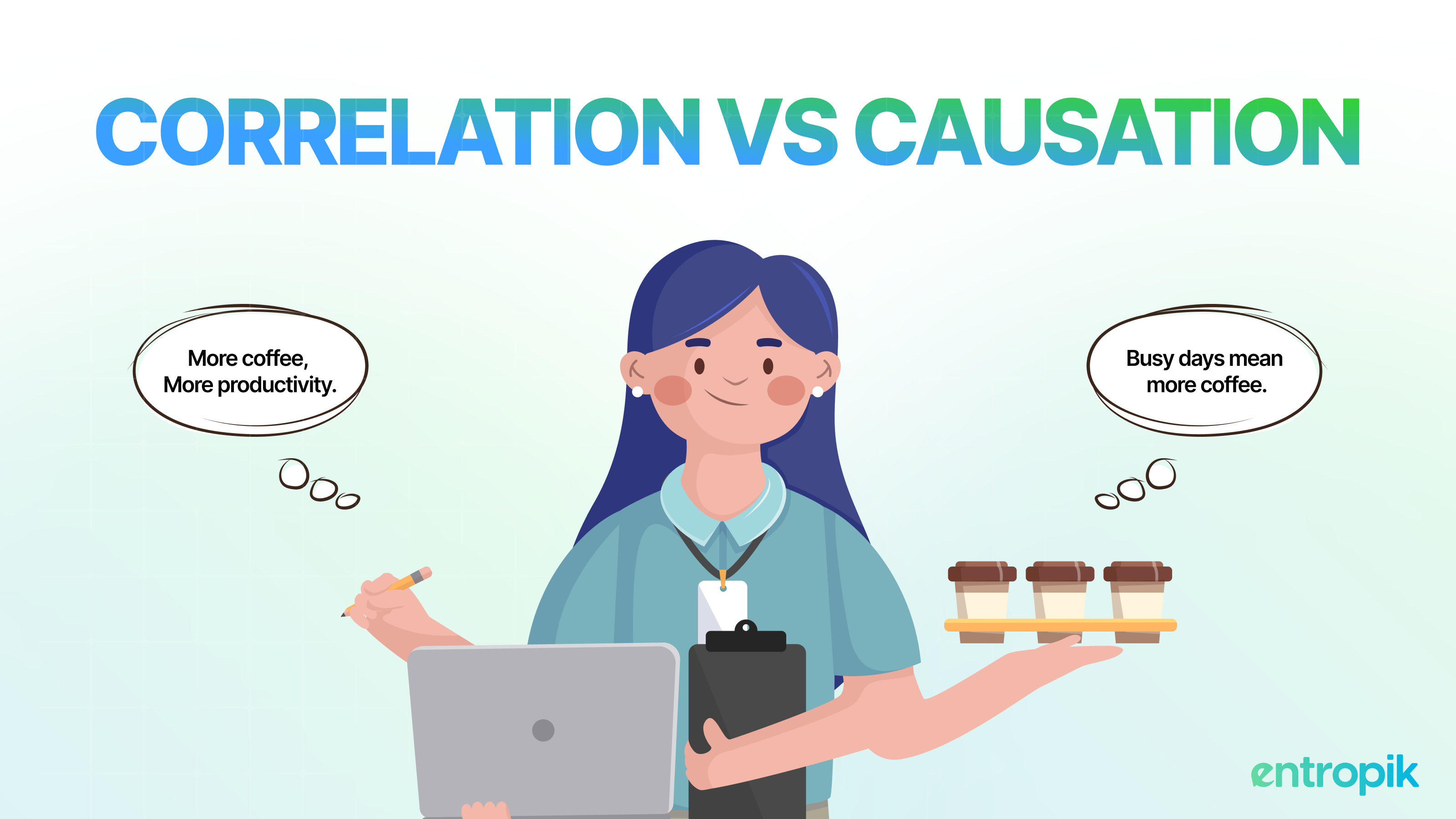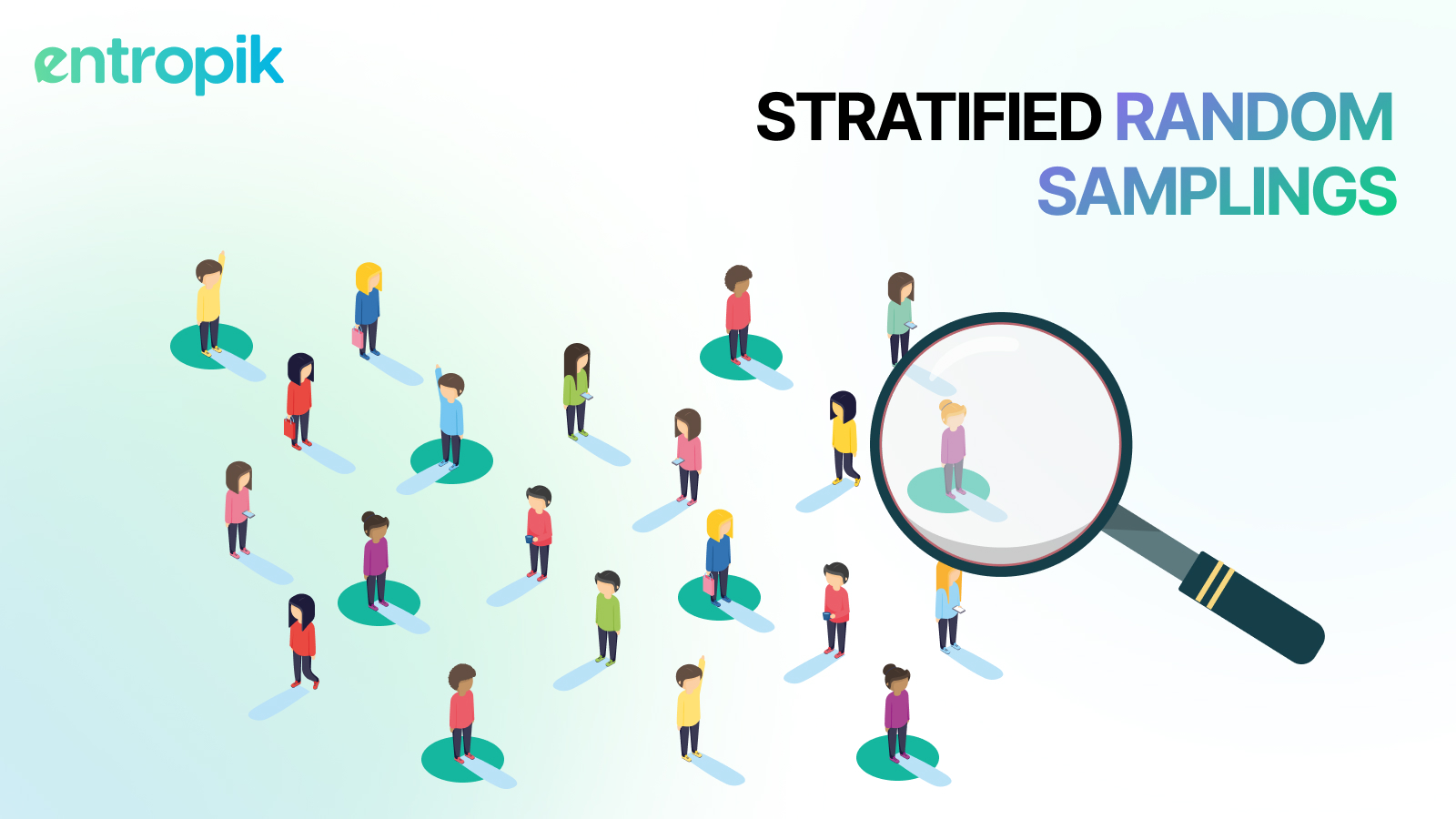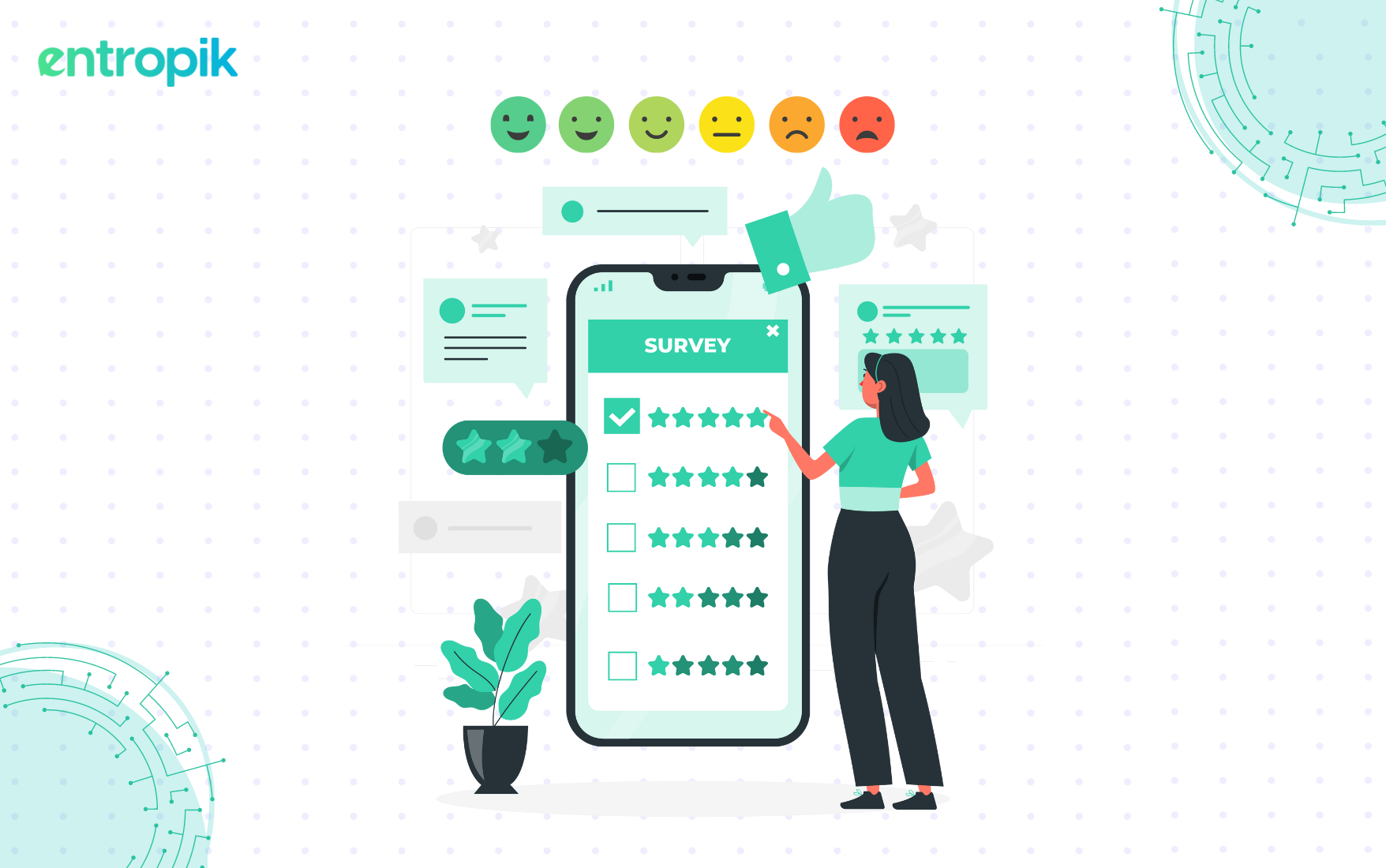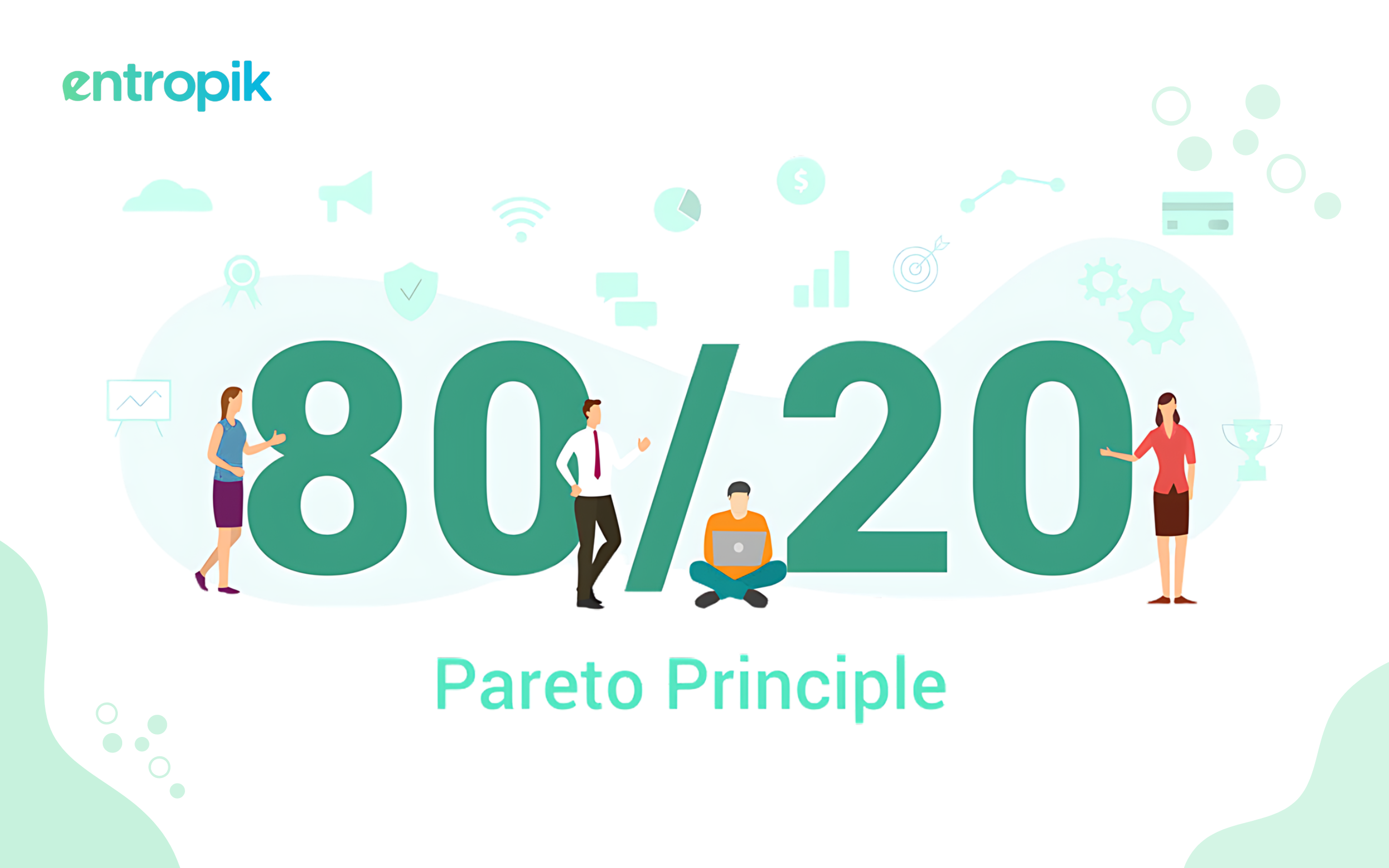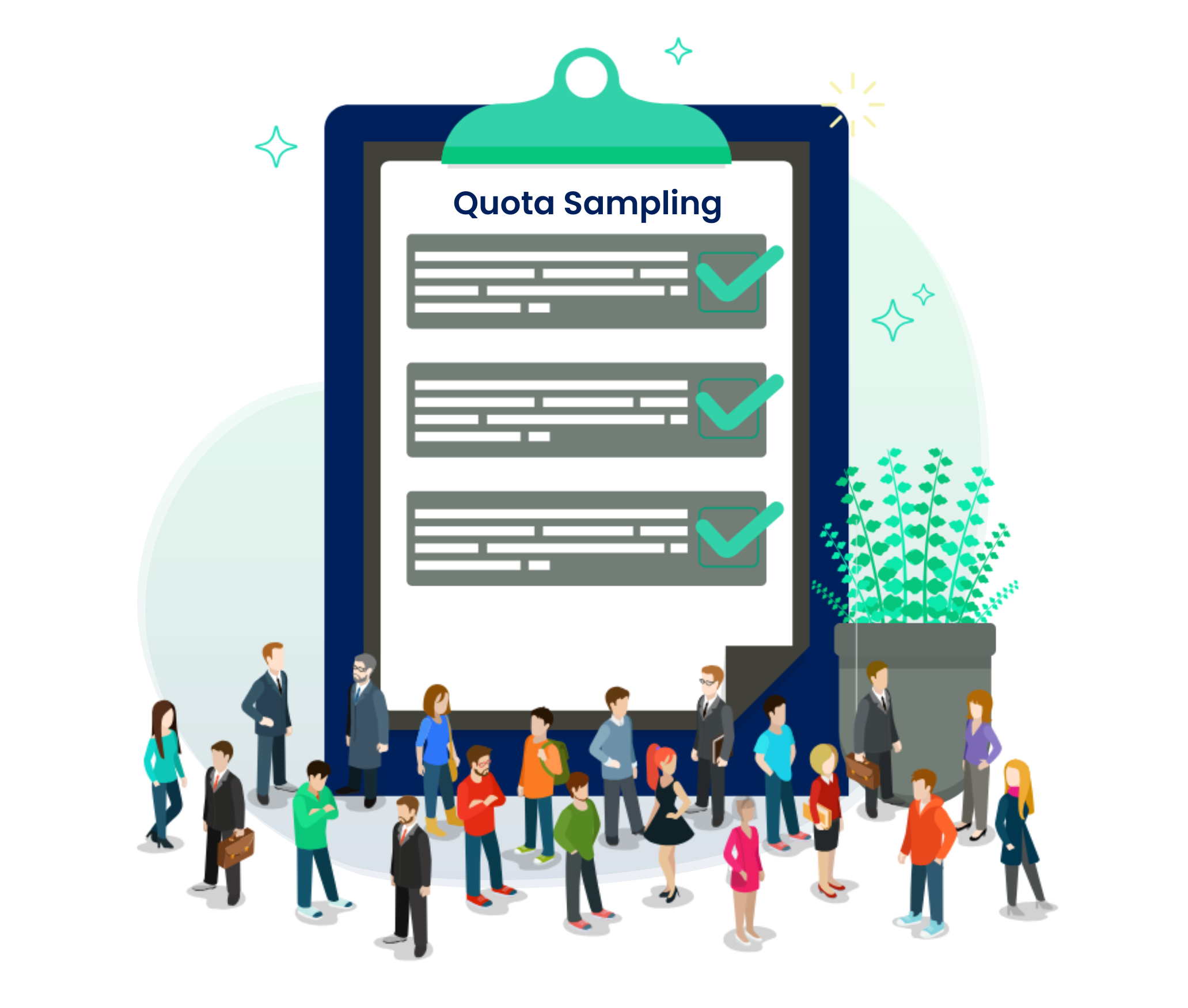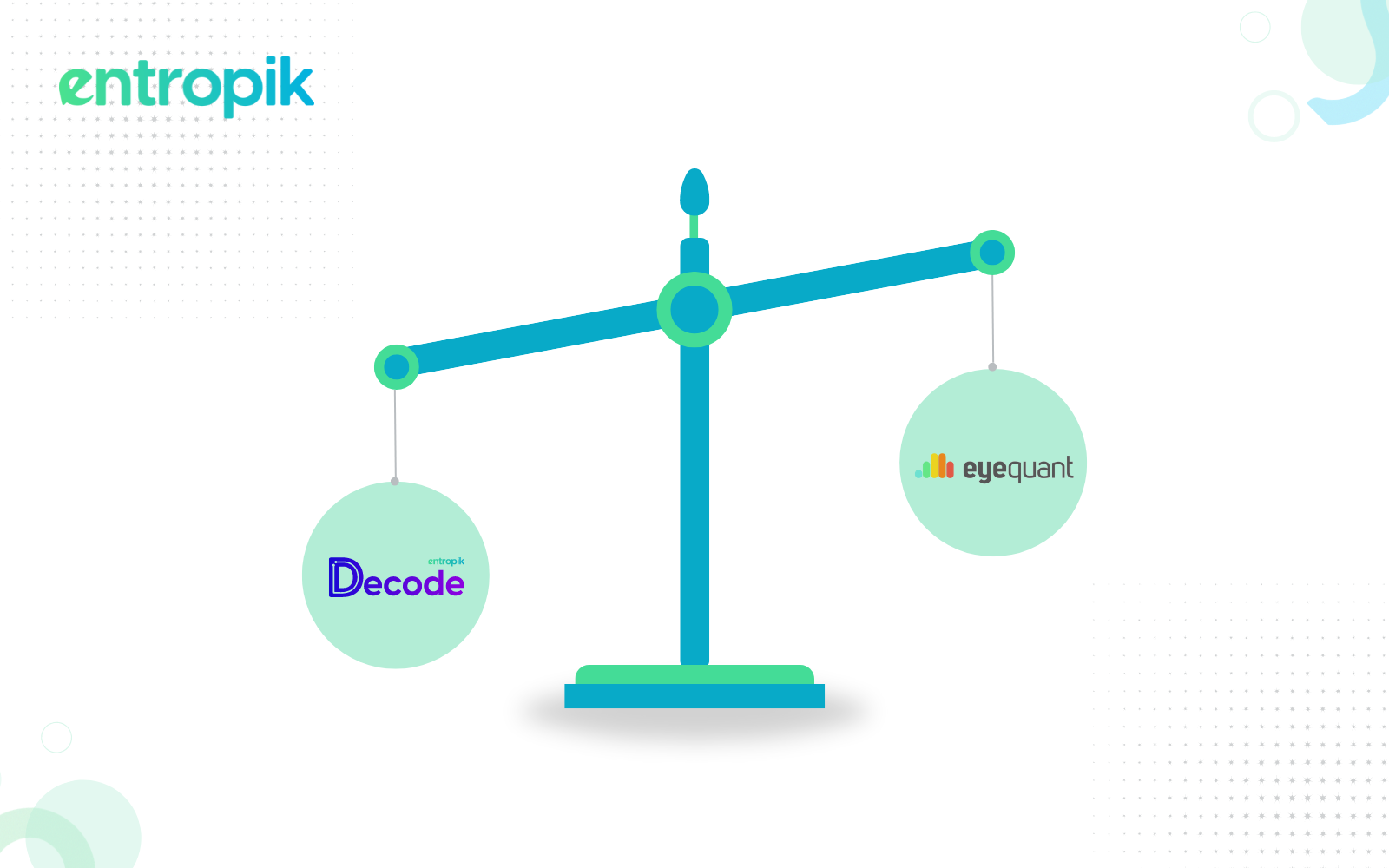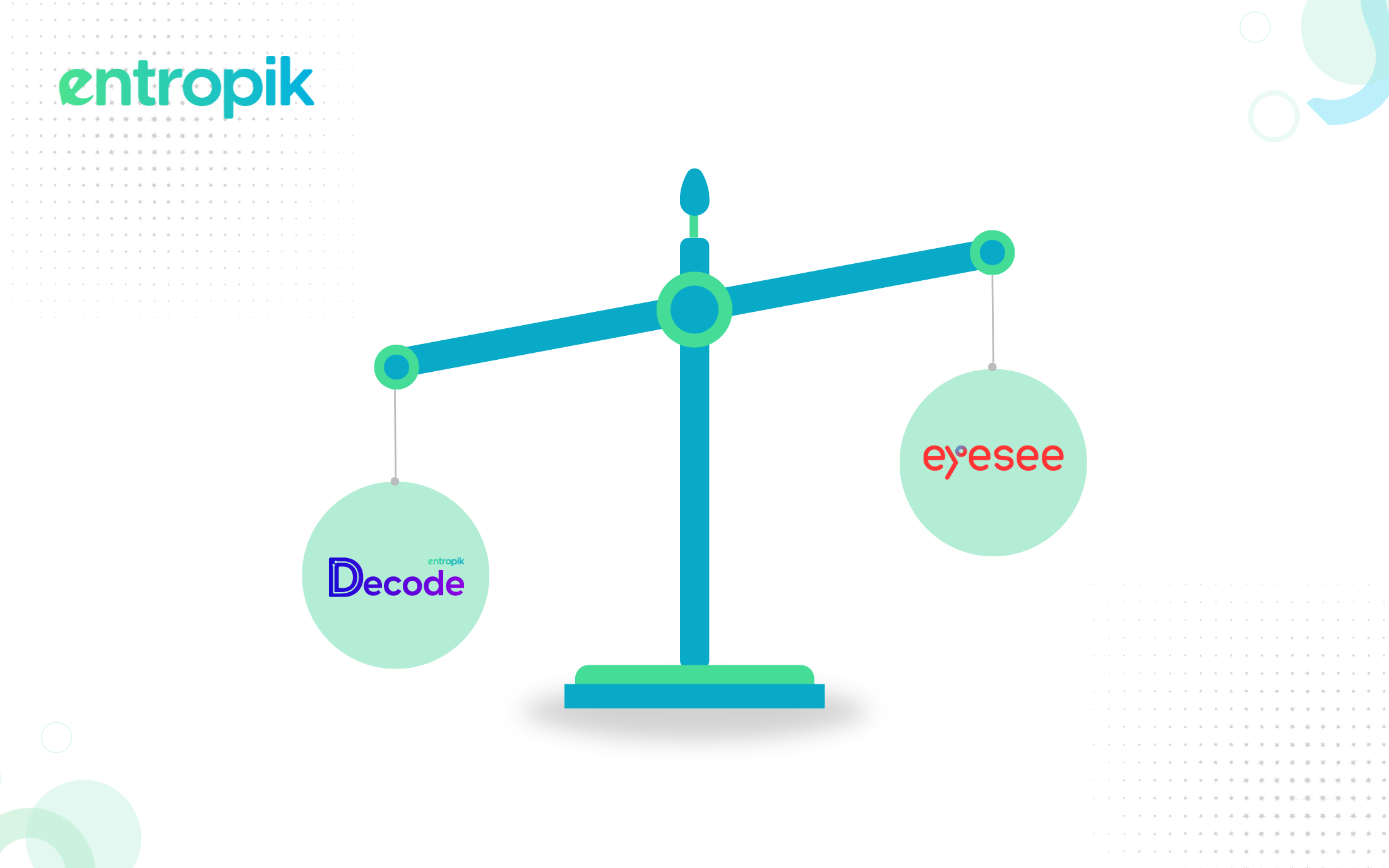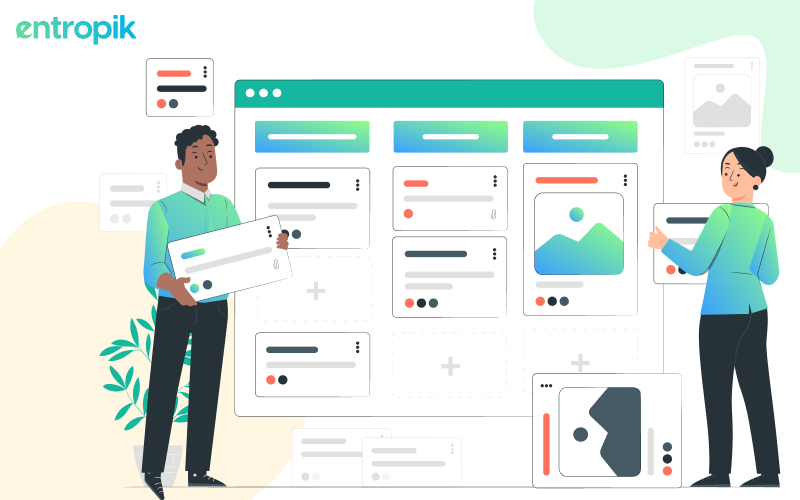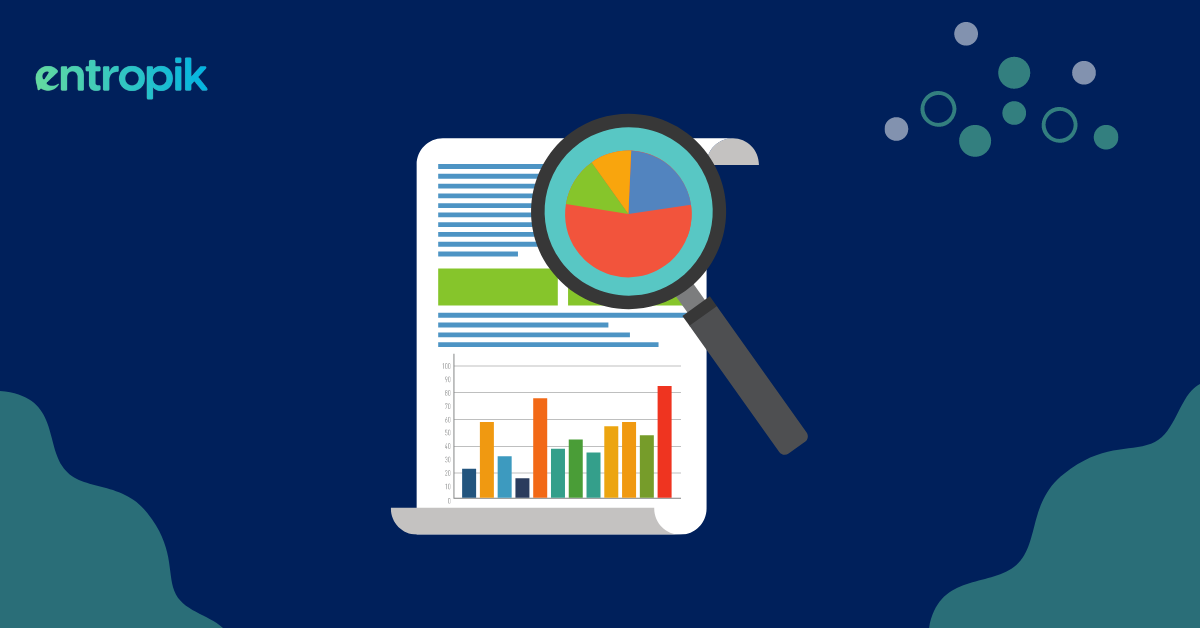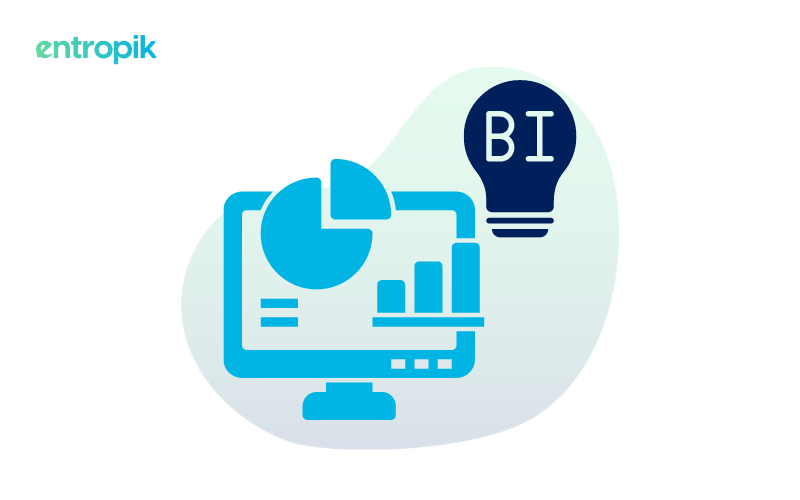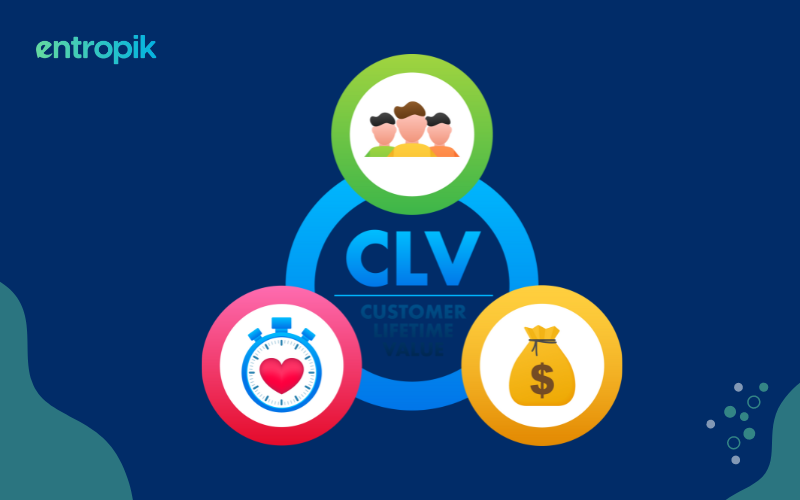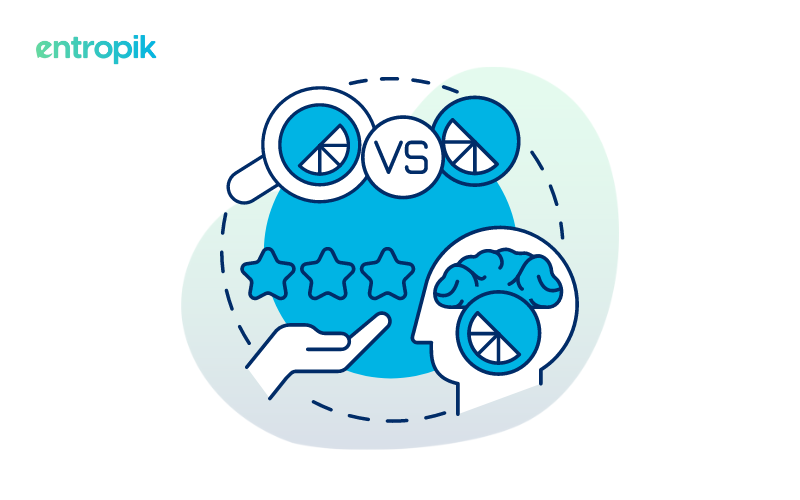What is Market Intelligence?
Market intelligence is the systematic gathering, analysis, and interpretation of relevant data and information about a specific market or industry. Its purpose is to give businesses insights into market research trends, customer behavior, competitor strategies, and other factors influencing decision-making, enabling informed and strategic actions to achieve competitive advantage and business growth.
Market intelligence tools are vital for businesses, as they allow them to improve performance with the knowledge of market dynamics, customer preferences, and competitors’ actions.
On the one hand, this information might help a company understand its mistakes and find ways to prevent them in the future. On the other hand, acquiring important market information could be used for further business optimization. When the companies know all market specifics, they get perspectives for further development and growth.
Example of Market Intelligence
For example, let’s take a company that manufactures and sells smartphones. As part of their market intelligence, they collect data from several sources: customer surveys, social media listening, sales of cellphones, analysis of competitors, and industry reports.
The market intelligence department has noticed the trend: the number of complaints concerning the battery life of the latest smartphone model is increasing. What is more, scanning social media, the market intelligence citizens’ department sees that the customers complain that the battery capacity of the company’s smartphone is less than their competitors have for their devices.
In response, the company conducts further market research to understand the extent of the issue and its impact on customer satisfaction and brand reputation. They find that battery life is a critical factor influencing purchasing decisions in the smartphone market.
Based on the market intelligence acquired by the company, it is possible to assume that the battery life issue is one of the major factors influencing customers’ decisions. Consequently, the company opted to use its marketing strategy to highlight the steps taken in the context of research and development to enhance the quality of the product. Specifically, the company emphasized improved battery technologies in its next model.
The chosen approach is fully justified since it addresses customers’ common concerns or frustrations directly. It ensures the product meets their needs perfectly, providing the organization with a competitive advantage. In the end, using acquired market intelligence for making strategic decisions enables the company to develop and launch a new smartphone model with significantly improved battery life.
Different Types of Market Intelligence with Examples

Market intelligence can be categorized into various types based on the sources of information and the focus of analysis. Here are some common types:
1. Competitive Intelligence
This type of market intelligence is associated with monitoring the activities, strategies, strengths, and weaknesses of rivals and their position in the market to help companies identify threats and opportunities in the competitive setting. As such, this form of market intelligence aims to forecast the actions and responses of rivals and understand the impact of competitors on the focal company’s position and performance in the market.
For instance, a smartphone producer can follow the product launches, price changes, and marketing strategies of competitors to stay ahead.
2. Customer Intelligence
Customer intelligence involves understanding customers' needs, preferences, behavior, and feedback. It includes gathering data from surveys, feedback forms, social media, and customer interactions to gain insights into customer demographics, purchasing patterns, satisfaction levels, and brand perceptions.
For instance, an e-commerce company may analyze customer browsing and purchase history to personalize recommendations and improve the shopping experience.
3. Market Trend Analysis
This type of market intelligence is about understanding and analyzing market trends. This involves tracking changes in consumer behavior, technology, market regulation, economic indicators, and more to keep pace with the industry.
A food delivery service can also make proper adjustments to the menu by analyzing the market intelligence of the growing popularity of vegan options.
4. Product Intelligence
Product intelligence is the process of collecting information about a product, such as its features, performance, prices, and customer reviews. This includes product comparisons, review and rating analysis, and monitoring what stage of its lifecycle the product is in and how it is sold and promoted.
For instance, software companies might analyze the feedback and usage history to see where the product can be improved and what previously untried areas can be innovated.
5. Supplier Intelligence
Supplier intelligence refers to the process of obtaining and analyzing information about suppliers, vendors, and other supply chain partners. It consists in evaluating supplier capabilities, performance, costs, and potential hazards to keep the supply chain working like clockwork.
For instance, a manufacturing firm may monitor supplier performance measures and relevant news in the industry to forecast supply interruptions and ward off risks.
What Are The Advantages of Market Intelligence?
Market intelligence offers several advantages to businesses:
1. Informed Decision Making
Market intelligence refers to the timely and pertinent information about market trends, customer wants and needs, and competitor activities that businesses can use to make informed decisions to develop new products and market new goods and services. It covers data about the market, the target customers, value market share, and competitors.
2. Competitive Advantage
The informational backdrop can be handy in various contexts related to decision-making concerning product offering, marketing, pricing, and location of the target market. It allows businesses to identify opportunities and threats and remain innovative and competitive to differentiate their product and seize opportunities for further growth.
3. Risk Mitigation
Businesses use market intelligence to prevent risks and threats. The primary function of market intelligence is to identify potential challenges, market fluctuations, or rivalry that may pose a competitive threat and be hazardous to your business. That is why a competitive approach may help companies develop a contingency plan concerning threats they see ahead.
4. Enhanced Customer Understanding
Reviewing customer behavior preferences and extending intelligence concepts provides insight into the target audience. Such an approach allows the company to develop the product or service or improve marketing efforts, making it relevant to certain needs of your customers.
5. Resource Optimization
Market intelligence allows businesses to allocate resources more efficiently by focusing on areas with the highest potential for return on investment. Whether allocating marketing budgets, prioritizing product development initiatives, or expanding into new markets, informed decision-making based on market intelligence helps maximize resource utilization and minimize waste.
How to Gather and Use Market Intelligence?
Gathering and using market intelligence effectively involves several steps:
1. Set Goals
Before gathering information, it's important to know what you're aiming for. Are you looking to understand your customers better, keep an eye on competitors, or explore new opportunities? By setting clear goals, you'll know what information to focus on.
2. Find Information
Look for information from various sources. This could include customer feedback, online reviews, sales data, industry reports, or even conversations with people in your industry. Each source can provide different insights into your market.
3. Collect Data
Once you've identified your sources, gather the data you need. This might involve conducting surveys, analyzing social media trends, studying sales figures, or researching industry news. Be thorough in collecting relevant information that aligns with your goals.
4. Organize and Understand
Organize the data you've collected to make it easy to understand. This could involve creating charts or graphs to visualize trends, categorizing data into different segments, or summarizing key findings. Take the time to analyze the data to uncover insights that can inform your decisions.
5. Use What You Learn
Put the insights you've gained into action. Use them to decide about your products, services, pricing, marketing strategies, or customer experience. For example, if you learn that customers are dissatisfied with a particular product feature, you can prioritize improving it to meet their needs better.
6. Keep Learning
Market intelligence is an ongoing process. Stay curious and continue to gather information over time. Keep an eye on changes in your market, customer preferences, and competitor actions. You'll be better prepared to adapt to evolving trends and opportunities by staying informed.
7. Take Action
Finally, take action based on the insights you've gathered. Implement changes or strategies that are supported by your market intelligence findings. Monitor the results of your actions and be prepared to adjust your approach as needed. Continuous learning and adaptation are key to staying competitive in today's dynamic business environment.
What is the Difference Between Marketing Intelligence and Marketing Research?
Tips for Collecting and Improving Marketing Intelligence
1. Define Clear Objectives
Defining the objectives and goals you hope to meet is an important first step in marketing intelligence gathering. What type of information do you hope to get, and what you would like to use it for be. Your objectives should drive further decision-making.
2. Identify Relevant Data Sources
Identify what sources of information you would like to explore. Remember that marketing intelligence can be based on internal and external information. Internal sources include sales information and your customers. You must decide on the external data you want to access. Remember that the more data sources you access – the better. Numerical data and stats should be used alongside customer feedback, reviews, and opinions.
3. Leverage Technology
Use technology tools and platforms to streamline data collection and analysis processes. Numerous marketing intelligence software solutions can help automate data gathering, analyze large datasets, and generate actionable insights. Explore tools for social media monitoring, web analytics, customer relationship management (CRM), and competitive intelligence to enhance your marketing intelligence capabilities.
4. Monitor Competitor Activities
Every business that provides similar goods or services is your competition. The ability to learn as much as you can about each of them will yield insight into their strategies, products or services, pricing strategies, and marketing efforts. Valuable information can be retrieved by monitoring their blog and social media content, press releases, and advertising avenues.
5. Listen to Customer Feedback
Feedback is incredibly helpful; the problem with reaching out to the customer might lie in how to do it most effectively. You can find contact emails or invite clients or customers to participate in a survey on your site. You can monitor your mentions on various social networks. Search for feedback from those who have already used your products or services or read customer reviews on different sites.
6. Stay Up-to-Date with Industry Trends
Stay informed of trends and market changes in your industry. While some changes may not have an impact that you need to concern yourself with, some are significant to advertising and may require you to shift the strategy used to promote a product, increase a particular product’s sales, or draw new customers.
7. Regularly Review and Update Strategies
Marketing intelligence is an ongoing process that needs to be maintained. Ensure you regularly review your marketing intelligence program to evaluate whether it is producing results and needs improvement or replacement. Also, remember to adjust your plans and objectives based on the newly acquired intelligence because the marketing environment is constantly changing.
{{cta-button}}
Final Words
Marketing intelligence is a cornerstone of informed decision-making and strategic planning in today's dynamic business environment. Businesses can better understand their target audience and competitive landscape by systematically gathering, analyzing, and interpreting relevant data and insights about market trends, customer behavior, and competitor activities.
Similarly, Decode, an integrated consumer research platform powered by Insights AI, can provide valuable insights into market trends, customer behaviors, competitor strategies, and other relevant factors. It helps businesses make informed decisions by analyzing data related to their industry, target audience, and competitors.















.jpg)



